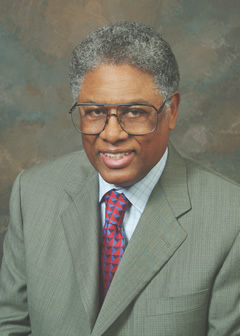IMO, being willing to at least listen to all sorts of different opinions is pretty important. Even if you don't agree with them, at least analyze those opinions because otherwise, you'll do what the average Joe is constantly guilty of: if you're a Democrat, you'll only accept information from Democrat-friendly TV stations/newspapers/whatever or if you're a Republican, you'll only accept information from Republican-friendly sources.
Fuck that.
ITT, please share your favorite economics-related sites or blogs and tell us a thing or two about each. The author's philosophy and so on.
I'll start with a few links.
First of all, 3 links to let's call them Austrian School sources, so websites that are mostly read by people agree with the Austrian School's theories:
1. Mises.org - it's a pretty popular website on WF, so no additional info is required, definitely the most frequently quoted Austrian School-related site
2. ZeroHedge - lots of info/articles that one can't find on mainstream sites, I don't like the fact that they're excessively bearish; by being *too* bearish, even if you're right when it comes to the big picture, you're leaving the money you could have made via short-term strategies on the table IMO
3. Peter Schiff's YouTube Channel - he called the housing market crash back when everyone made fun of him, he predicted the financial crisis and so on; however, keep in mind that he owns Euro Pacific Precious Metals, so he tends to aggressively recommend... precious metals
Alright, now here's one Keynesian blog:
Paul Krugman's New York Times Blog - a lot of ZeroHedge readers hate the guy but he is a Nobel Prize winner, so at least listening to what he has to say can't hurt; he's definitely the most popular Keynesian author at the moment of writing
Alright, now it's time for a site I'm having a hard time categorizing:
Martin Armstrong's Blog - like Schiff, he made several accurate predictions but his theories are completely different; I'd say Martin Armstrong presents more history-related arguments than most authors, so even if you don't agree with his assessments (he thinks hyperinflation isn't a realistic risk and explains why), taking those arguments into consideration can't hurt
These are the 5 sources I'd recommend, share your favorite sites and let's compile a list. WF is a good place to find people who think outside the box, should be interesting.
Fuck that.
ITT, please share your favorite economics-related sites or blogs and tell us a thing or two about each. The author's philosophy and so on.
I'll start with a few links.
First of all, 3 links to let's call them Austrian School sources, so websites that are mostly read by people agree with the Austrian School's theories:
1. Mises.org - it's a pretty popular website on WF, so no additional info is required, definitely the most frequently quoted Austrian School-related site
2. ZeroHedge - lots of info/articles that one can't find on mainstream sites, I don't like the fact that they're excessively bearish; by being *too* bearish, even if you're right when it comes to the big picture, you're leaving the money you could have made via short-term strategies on the table IMO
3. Peter Schiff's YouTube Channel - he called the housing market crash back when everyone made fun of him, he predicted the financial crisis and so on; however, keep in mind that he owns Euro Pacific Precious Metals, so he tends to aggressively recommend... precious metals
Alright, now here's one Keynesian blog:
Paul Krugman's New York Times Blog - a lot of ZeroHedge readers hate the guy but he is a Nobel Prize winner, so at least listening to what he has to say can't hurt; he's definitely the most popular Keynesian author at the moment of writing
Alright, now it's time for a site I'm having a hard time categorizing:
Martin Armstrong's Blog - like Schiff, he made several accurate predictions but his theories are completely different; I'd say Martin Armstrong presents more history-related arguments than most authors, so even if you don't agree with his assessments (he thinks hyperinflation isn't a realistic risk and explains why), taking those arguments into consideration can't hurt
These are the 5 sources I'd recommend, share your favorite sites and let's compile a list. WF is a good place to find people who think outside the box, should be interesting.





